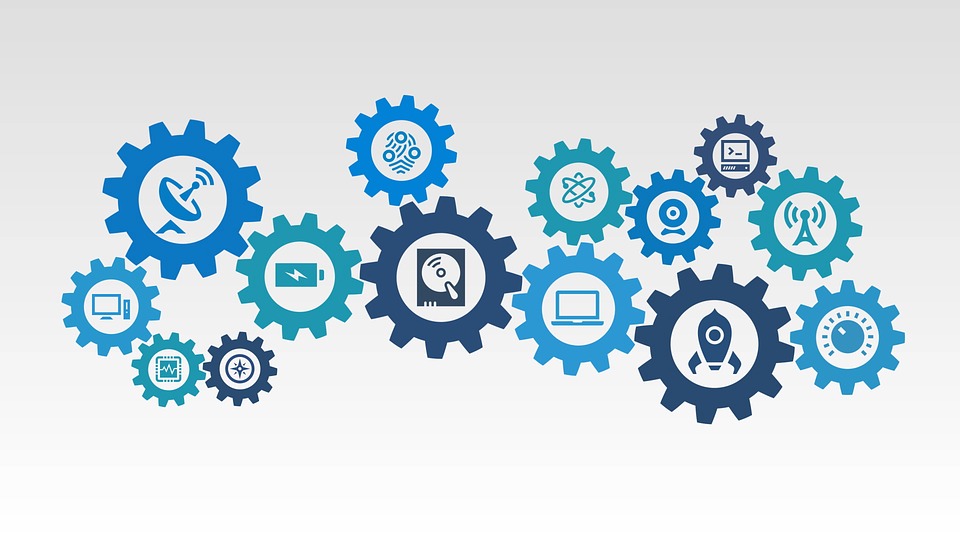The digital world, you know, keeps changing very, very fast, and with it come new kinds of tools that get people talking. One topic that has certainly caught a lot of attention lately, especially on places like Reddit, is something often called "AI undresser." This phrase, as a matter of fact, brings up a lot of questions and sparks some quite serious discussions about technology, privacy, and what's right or wrong.
People are often curious about what these tools actually do, how they work, and, perhaps more importantly, what the real-world effects might be. It's a bit of a complex subject, with various points of view floating around. We often see these conversations pop up in online communities, where folks share thoughts, concerns, and sometimes, just information about what's happening with new AI creations. So, it's almost a given that these discussions find a home on popular forums.
This article aims to shed some light on the chatter around "AI undresser Reddit," looking at what it means for individuals and the wider digital space. We will, in fact, try to break down the different aspects of this topic, from the technology that makes it possible to the very real concerns it brings up for many people. Our goal here is to help you get a clearer picture of this conversation and its place in the bigger story of AI development today.
Table of Contents
- Understanding the Buzz Around AI Undresser Reddit
- The Ethical Side of AI Image Tools
- How Reddit Fits into the Conversation
- Protecting Yourself and Promoting Responsible AI Use
- Frequently Asked Questions
Understanding the Buzz Around AI Undresser Reddit
When you hear the term "AI undresser Reddit," it usually refers to discussions or sharing related to artificial intelligence tools that can, in a way, alter images of people. These tools often aim to remove clothing from a picture, making it appear as if the person is unclothed. It's a rather unsettling concept for many, and it brings up immediate thoughts about privacy and consent. People on Reddit, you know, talk about everything, and this topic is certainly no exception, often leading to very heated debates.
What People Mean by AI Undresser
The term "AI undresser" describes a type of application or process that uses artificial intelligence to change existing images. Basically, it tries to create a new version of a picture where a person's clothing is digitally removed, or sometimes, replaced with simulated skin. This is, in fact, achieved through complex computer programs that have learned from vast amounts of data. The output is, in some respects, a fabricated image, not a real one, but it can look very convincing to the casual viewer. This technology raises serious questions about the authenticity of digital images, which is a big deal in our visual world.
The core idea behind these tools is image manipulation, which has been around for ages, but AI brings a new level of ease and realism to it. What used to take a lot of skill with photo editing software can now, you know, be done with just a few clicks using certain AI programs. This accessibility is part of why the conversation around "AI undresser Reddit" has become so prominent. People are often sharing their observations, concerns, or even just trying to figure out how these things are even possible, which is a natural human response to new tech.
Generative AI and Its Role
At the heart of "AI undresser" tools is a type of artificial intelligence known as generative AI. My text mentions, "What do people mean when they say “generative ai,” and why are these systems finding their way into practically every application imaginable?" Generative AI systems are, in essence, designed to create new content, whether that's text, images, music, or even video. They learn patterns and structures from huge datasets and then use that knowledge to produce something original, or at least something that appears original. For instance, you know, MIT AI experts help break down how these systems work, showing their widespread presence.
In the case of image manipulation, generative AI can take an existing image and, sort of, imagine what it would look like under different circumstances. This means it can add or remove elements, change styles, or, as we're discussing, alter clothing. The ability of these systems to generate realistic-looking visuals is, quite frankly, what makes them so powerful and, simultaneously, a source of concern. MIT news, for example, explores the environmental and sustainability implications of generative AI technologies, highlighting their wide impact. So, the technology itself is very broad, with many different uses.
The progress in generative AI is, you know, quite rapid. My text points out that "MIT researchers developed an efficient approach for training more reliable reinforcement learning models, focusing on complex tasks that involve variability." This kind of research contributes to the overall advancement of AI, making these tools more capable over time. It's this continuous development that keeps the discussion around their uses, both good and bad, very active. The underlying methods are always getting better, which is something to keep in mind.
The Ethical Side of AI Image Tools
The existence of "AI undresser" tools brings up a lot of serious ethical questions. When AI can create images that look real but are not, it can be, you know, quite damaging. These concerns go beyond just the technology itself and touch upon issues of personal dignity, consent, and the truthfulness of what we see online. It's a discussion that needs to happen very openly, and platforms like Reddit often become a place where these difficult topics are aired out.
Privacy Concerns and Personal Space
One of the biggest worries surrounding "AI undresser" tools is the invasion of privacy. An image of someone, taken without their knowledge or permission, can be altered to create something that never happened. This can, obviously, cause immense distress and harm to the individual involved. It's a direct assault on a person's digital and personal space. The ability to do this with relative ease means that anyone's picture, if it's online, could potentially be used in such a way, which is a rather scary thought for many people.
The concept of digital consent becomes very, very important here. Do people truly consent to their images being used in ways that they never intended, especially for creations that are sexually explicit or demeaning? Most people would say no, of course. This lack of consent is, you know, a central ethical problem. It underscores the need for strong protections for individuals online and clear rules about how AI can and cannot be used to manipulate personal images. It's a fundamental right to control one's own image, really.
Moreover, the spread of such altered images can have lasting consequences for a person's reputation and well-being. Once an image is out there on the internet, it's incredibly hard to remove it completely. This is, in fact, a pain point for many people who find themselves victims of such misuse. The ease with which these images can be generated and shared means that the potential for harm is very, very widespread. So, the impact can be quite deep and long-lasting for those affected.
The Call for Wisdom in AI Development
The ethical dilemmas posed by tools like "AI undresser" highlight a broader need for responsible AI development. My text mentions that "Ben Vinson III, president of Howard University, made a compelling call for AI to be “developed with wisdom,” as he delivered MIT’s annual Karl Taylor Compton Lecture." This call for wisdom means thinking carefully about the potential negative effects of AI, not just its exciting capabilities. It's about building systems that benefit humanity without causing harm, which is a pretty big challenge.
The conversation around AI development, therefore, needs to include a strong focus on ethics from the very beginning. As Gu suggests in my text, an AI that can "shoulder the grunt work — and do so without introducing hidden failures — would free developers to focus on creativity, strategy, and ethics." This means that AI creators should be thinking about the moral implications of their work, not just the technical ones. It's about building safeguards into the technology itself, so it can't be easily misused. This is, in fact, a crucial part of making AI trustworthy.
This includes considering how AI models are trained and what data they learn from. If models are trained on data that is biased or problematic, their outputs can reflect those issues. For instance, my text mentions a user experience concern: "Who would want an AI to actively refuse answering a question unless you tell it that it's ok to answer it via a convoluted" process? This shows that even seemingly small design choices in AI can have big impacts on user experience and, you know, ethical considerations. It's all part of making AI that serves us well.
How Reddit Fits into the Conversation
Reddit, as a platform, often serves as a digital town square where all sorts of topics are discussed, including those that are controversial or new. The conversations around "AI undresser Reddit" are a clear example of this. It's a place where people can share news, ask questions, and debate the implications of new technologies. This open forum approach, you know, means that a wide range of opinions gets expressed, which can be both a strength and a challenge for the platform itself.
Community Discussions and Information Sharing
On Reddit, you will find communities, called subreddits, dedicated to AI, ethics, privacy, and even specific tools. These communities become hubs for information sharing, where users might post articles, research papers, or personal experiences related to "AI undresser" tools. This informal sharing can, in fact, help spread awareness about the technology and its potential dangers. People often learn about new developments or risks from these discussions, which is quite helpful for staying informed.
The discussions can also serve as a barometer for public sentiment. When a topic like "AI undresser" gains traction, it shows that there's significant public interest and concern. This kind of grassroots discussion can, you know, sometimes even influence policy makers or tech companies to address issues more directly. It's a way for collective voices to be heard, even if they are just comments in a forum. The sheer volume of posts and comments can indicate how much a topic matters to people.
However, it's important to remember that not all information shared on Reddit is accurate or responsible. Like any open platform, it can also be a place where misinformation spreads or where harmful content is shared. Users need to be, you know, quite discerning about what they read and believe. This is why critical thinking is very, very important when engaging with these kinds of online discussions. It's a mix of good and bad, as with most internet places.
The Challenges of Content Moderation
For platforms like Reddit, managing content related to "AI undresser" tools presents a significant challenge. Balancing free speech with the need to protect users from harmful or illegal content is a delicate act. Reddit has rules against certain types of content, especially those that involve non-consensual intimate imagery. However, the sheer volume of posts and the clever ways people try to bypass rules make moderation very, very difficult.
The nature of AI-generated content adds another layer of complexity. It can be hard to determine if an image is real or fake, and sometimes, even harder to trace its origin. This makes it tough for moderators to identify and remove problematic content quickly and effectively. As my text suggests with the "worst UX ever" comment, sometimes systems are not designed with user safety or ease of reporting in mind. This means, you know, the burden often falls on users to report, which can be a slow process.
The ongoing battle between those who create and share such content and those who try to stop it is a continuous one. It requires constant vigilance and adaptation from platform providers. This is, in fact, a reminder that while AI offers many amazing possibilities, it also demands serious consideration of its potential for misuse and the necessary steps to prevent harm. It's a problem that requires a lot of thought and effort from everyone involved, really.
Protecting Yourself and Promoting Responsible AI Use
In a world where AI tools can do so much, it's wise to take steps to protect your own digital presence and to encourage the responsible use of this powerful technology. Understanding how these tools work and the risks they pose is, you know, the first step. Being proactive about your online privacy and supporting ethical practices can make a real difference for everyone. It's about being smart in a very digital age.
Being Aware of Digital Footprints
Every time you post a photo online, you create a digital footprint. These images can potentially be used by AI systems, sometimes without your knowledge. So, it's a good idea to be mindful of what pictures you share publicly and with whom. Consider adjusting your privacy settings on social media platforms to limit who can see your photos. This simple step can, you know, go a long way in reducing your exposure to potential misuse. It's a bit like locking your front door.
Regularly reviewing your online presence can also be helpful. Search for your own name or images to see what's publicly available. If you find content that makes you uncomfortable or seems to be misused, you can, in fact, take steps to report it or request its removal. Many platforms have policies against non-consensual intimate imagery, and they provide ways to report such content. Learning more about digital privacy on our site can help you with these steps, offering practical advice.
It's also worth remembering that even seemingly harmless photos can be used. My text mentions how "With help from AI, MIT scientists developed a method that generates satellite imagery from the future to depict how a region would look after a potential flooding event." While this is a positive use, it shows AI's capability to alter images in sophisticated ways. This means, you know, that even a regular photo could, in theory, be changed. So, being cautious is just a smart move, really.
Supporting Ethical AI Practices
Beyond personal protection, we can all play a part in promoting ethical AI development. This means supporting companies and researchers who prioritize safety, privacy, and fairness in their AI creations. Look for initiatives that advocate for responsible AI governance and policies. The discussions on platforms like Reddit, as a matter of fact, can be a starting point for collective action, helping to shape public opinion and push for better standards.
Engaging with discussions about AI ethics, like those often found on Reddit, can help raise awareness and encourage more thoughtful development. When people speak up about concerns, it creates pressure for change. For instance, you know, understanding how AI systems are built to be reliable, as MIT researchers are working on, is important for ensuring they don't introduce "hidden failures" that could lead to misuse. We can learn more about generative AI's impact and how it's being shaped for the future.
Ultimately, the future of AI depends on the choices we make today, both as individuals and as a society. By being informed, vigilant, and advocating for ethical principles, we can help guide AI technology towards uses that benefit everyone and avoid the pitfalls that tools like "AI undresser" represent. It's a shared responsibility, you know, to make sure this powerful technology is used for good, and not for harm. This is, in fact, a very important goal for our digital world.
Frequently Asked Questions
Is AI undressing legal?
The legality of using AI to create "undressed" images often depends on the specific laws in a given region and the intent behind creating or sharing such images. In many places, creating or distributing non-consensual intimate imagery, even if it's digitally altered, is, you know, very much illegal. These laws aim to protect individuals from privacy violations and harassment. It's important to check local regulations, as they can vary quite a bit.
How do AI undresser tools work?
These tools typically use advanced generative AI models, like those that create deepfakes. They are trained on large datasets of images to learn how different body parts and clothing appear. When given a clothed image, the AI tries to predict and generate what the person would look like without clothes, essentially "filling in" the missing information based on its training. It's a complex process of image synthesis, really.
What are the ethical concerns surrounding AI undressers?
The primary ethical concerns include the severe invasion of privacy, the creation of non-consensual intimate imagery, and the potential for harassment and exploitation. These tools can cause significant emotional and reputational harm to individuals whose images are used without their permission. They also contribute to the spread of misinformation and erode trust in digital media, which is a big problem for everyone, you know.



Detail Author:
- Name : Dannie Krajcik
- Username : ubeer
- Email : hermina.kilback@gmail.com
- Birthdate : 1996-07-26
- Address : 7435 Arnaldo Glens Suite 279 Auerfort, NC 75777-0263
- Phone : +1 (424) 612-5865
- Company : Bergstrom, Kuvalis and Bradtke
- Job : Pediatricians
- Bio : Amet consequatur voluptatem facere. Ratione velit id facilis aut et quod. Expedita tempore et vero odio. Autem quasi sed impedit error dignissimos sed.
Socials
linkedin:
- url : https://linkedin.com/in/jfranecki
- username : jfranecki
- bio : Beatae voluptatem qui est.
- followers : 3418
- following : 618
tiktok:
- url : https://tiktok.com/@jeanie_franecki
- username : jeanie_franecki
- bio : Sapiente quia earum architecto placeat vel ab.
- followers : 1321
- following : 1881
instagram:
- url : https://instagram.com/jeanie.franecki
- username : jeanie.franecki
- bio : Praesentium neque magni neque quaerat maiores. Et est veritatis aut nihil.
- followers : 1425
- following : 98